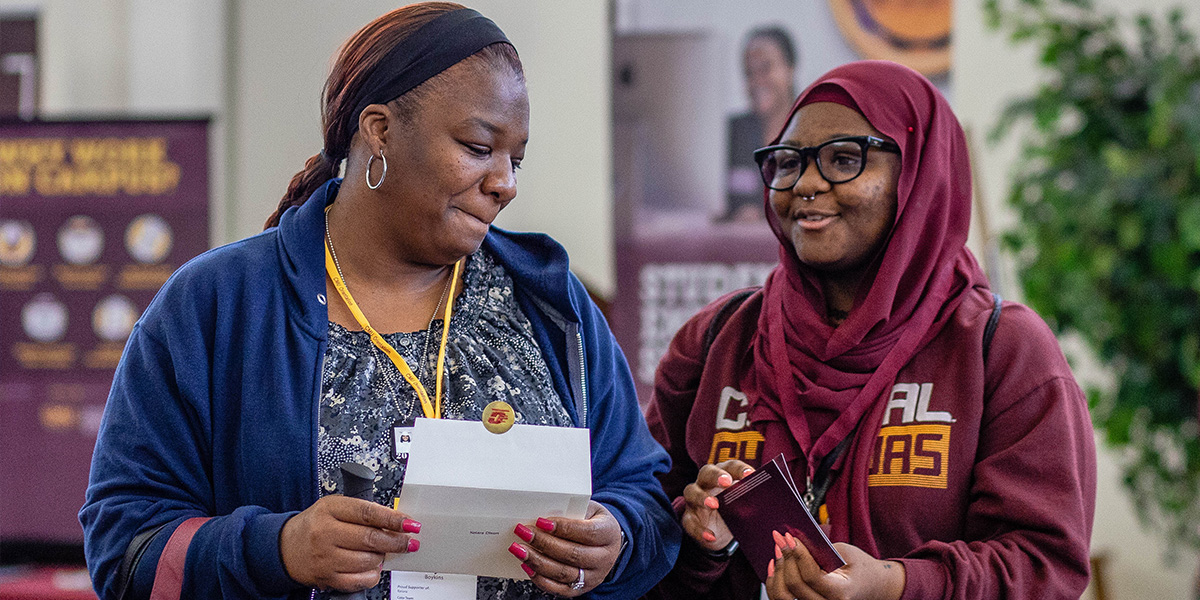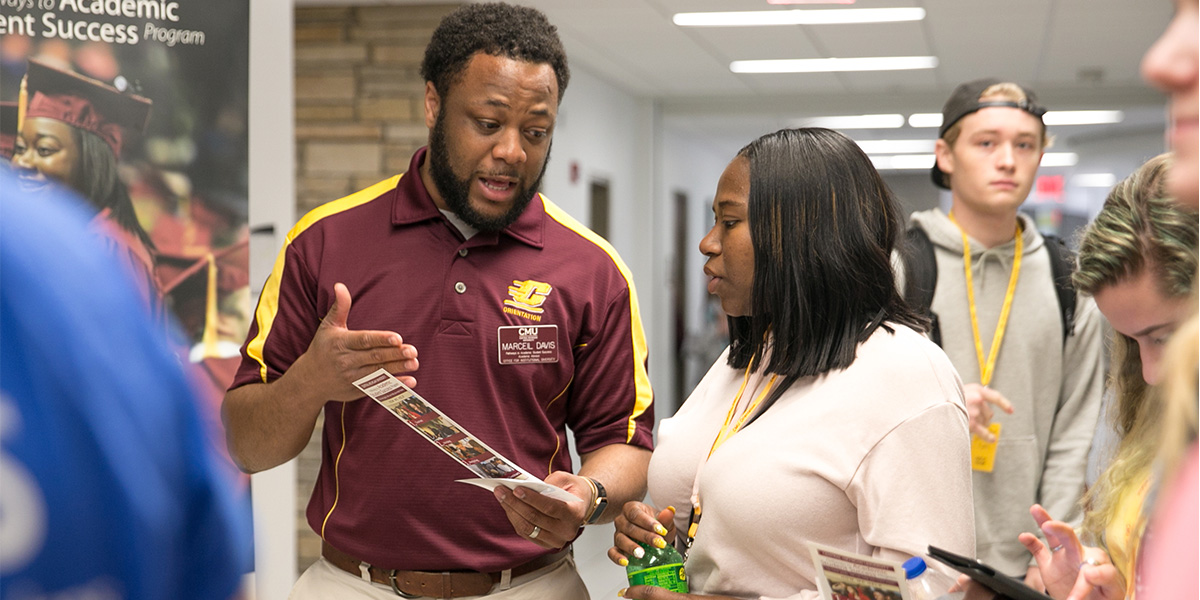13 tips for parents and supporters at college orientation
What is college orientation?
College orientation, also known as freshman orientation or transfer orientation, helps students adjust to life at a university. College orientations can be a single-day event or multi-day visits.
Most schools will host their freshman and transfer orientations the summer before students start classes. You can expect a day full of introductions, tours and scheduling. Orientation is a big step toward independence for students–and it's just as important for families and supporters.
Do parents go to college orientation?
80% of colleges or universities have some sort of parent, family or guest orientation programs according to Inside Higher Ed (August, 2019). And attending a parent orientation program can help ease the transition of sending your student to college. Most colleges and universities hold separate activities for parents and supporters. Parent orientation sessions might include; financial aid, campus safety and how to best support your student during college.
After the day is over, you'll meet back up with your student. This is a great time to discuss what you experienced and to make sure they got all their questions answered.

Freshman orientation versus transfer orientation
Depending on the type of student you have, you may attend either freshman orientation or transfer orientation. Both programs help prepare students for college life by meeting their needs and experience levels.
Freshman orientation, or first-year orientation, usually lasts one day or several days. It helps new students learn about college life.
Transfer orientation are typically shorter and more streamlined, since transfer students have already experienced college life elsewhere. These orientations usually focus on how credits will transfer. They also help students adjust to their new campus, not college in general.
13 tips for supporters at parent orientation
Here are thirteen tips to help college orientation go smoothly for you and your student.

1. Register early
Most colleges and universities will host their freshman orientations over the summer. If you have a transfer student, college orientation will take place the semester before they start classes. Registration opens a few months in advance.
Make sure to keep an eye on the dates available and register as soon as possible. Registering early for college orientation means you'll get your first-choice date. Your student will also get the first pick of classes for the next year.
2. Manage logistics
Help your student get ready for orientation by managing logistics for the day. How will you be getting there? Is lunch included? Do you need to book an overnight stay?
Taking care of the logistics means your student can focus on what's important - getting ready for college.
3. Research classes and program requirements
One of the most important parts of college orientation is class registration. While academic advisors will guide students through the process, it’s helpful to have done a little research ahead of time.
Help your student review a list of courses including major-specific classes, general education requirements and some interesting electives they might want to explore. Now is also a great time to talk about school-life-work balance. Help your student brainstorm strategies to be successful.
4. Pack light
Since you'll be traveling around campus visiting different buildings and dorms, it's a good idea to pack light. Bring a pen and paper for notes, your phone and charger and plenty of water. Most colleges and universities include lunch in the schedule, but it's a good idea to bring light snacks.
5. Be their cheerleader
You are your student's biggest supporter, so cheer them on! Remind your student how proud you are of them for taking this leap into adulthood and continuing their education. Encourage them to be their best, authentic self on orientation day.
6. Give them space
You and your student will have different events to attend throughout orientation day. While you may want to check in frequently, try to let your student have their independence. It's their chance to start building friendships and confidence on their own.
7. Ask questions

College orientation is for you too! While you're in parent orientation sessions, make sure to get all your questions answered. If you're not sure where to start, consider these questions:
- What financial resources are available?
- How does billing and tuition payments work?
- What are tips for moving in?
- What can my student expect out of their major or minor?
- How can I best support my student during college?
- Where can I find campus safety information?
- When are academic breaks where my student might come home?
8. Check in on resources for your student
College orientation is a great time to check in on the resources available to your student. Is there a health clinic on campus? What mental health resources are available? Is there tutoring or academic advising?
Parent orientation is also a great time to ask about any accommodations your student may need. While your student will likely get this same information, it's a great reminder!
9. Ask about campus safety and emergency procedures
What is the emergency alert system? How does the university handle severe weather or other emergencies? Asking these questions now can give you peace of mind later.
10. Start building your own support network
Orientation is a great time to connect with other parents and supporters. Networking can help you feel more comfortable and find some support. Some colleges and universities even have dedicated Facebook groups or emails lists for families.
11. Leave with contact information
College orientation can be overwhelming, for both you and your student. Take careful notes during sessions and collect information for key staff like financial aid advisors or residence life staff.
12. Explore the surrounding area
College orientations are most often held on campus. This makes it a great time to explore your student's new home. Find the nearest grocery stores, pharmacies, coffee shops and places your student might frequent. Knowing the area will help you feel more connected and give you suggestions for when your students ask questions.
13. Debrief on the way home
The drive home from college orientation is a great time to connect with your student. What did you enjoy? What questions do you still have? This is a great time to offer reassurance and support.
Central Michigan University's orientation
All new Central Michigan University students are required to attend an orientation session. Orientation dates are held throughout the summer, beginning in June. We encourage parents and supporters to attend!
Once your student is accepted, they can log in to their student portal to see their next steps and register for orientation. Encourage your student to register early! The earlier students register, the more date options available and teh sooner they can choose their classes.